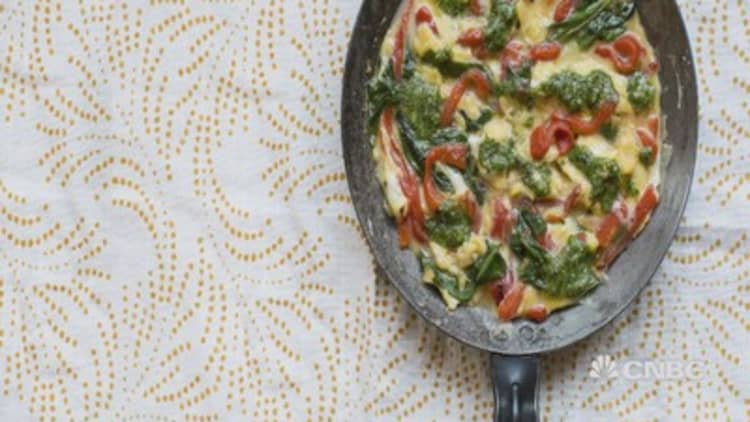
Meal kit delivery services like Blue Apron, Plated and others have gained popularity among food lovers with little time to cook.
Because the kits are ordered online, allow easy access to basic gourmet and specialty foods, and are cheaper than going out to an expensive restaurant, the sector is likely to grow substantially, according to research firm Technomic.
About 1 percent of adults in the United States have used one of these delivery services, according to research firm Mintel. Users are mainly adults ages 18 to 44, and are most popular among households with annual incomes of more than $75,000, because they often cost more than groceries and some restaurant take-out options, said Mintel Global Food and Drink Analyst Jenny Zegler.
The appeal is largely convenience. "Consumers with children in the household are more likely to use the services than those without children," Zegler added.
"If you're a busy professional, if you're a busy working mom, busy working dad, busy couple, it's just the type of thing where you can have the experience where we're almost like a farmers market in the sky, curated by a great chef," said Adam Zbar, CEO of meal kit delivery company, Sun Basket.
"For many consumers, the appeal of meal kits is the convenience of finding new recipes and all their ingredients on their doorsteps. Since time is often precious, consumers can just open the box and cook, saving the time on finding a recipe and shopping for ingredients," according to a recent Mintel report. "Moreover, these recipes might be outside of their normal routines, providing exposure to new flavors and ingredients, which appeals to consumers' desire for adventure in their diets, according to Mintel.
"We're so surrounded by food that many people want to be able to cook like celebrity chefs, but many lack the cooking skills in some cases and access to ingredients in others," Zegler said in an email. "For these budding chefs, meal kits offer the ability to create new and exciting recipes without having to find a recipe, hunt down the ingredients and worry about their technical skills — or potential lack thereof," Zegler said.
But even an experienced chef can appreciate the convenience of meal kits — if not necessarily embrace the concept overall.
"I love the idea of taking the planning part out of my dailylife," said chef Emily Peterson, New York Universityfood studies instructor and host of the Sharp &Hot podcast on the Heritage Radio Network.
"[But] from a cost perspective, I just can't justify it. I'm a chef! I feel like I'm letting down people who look up to culinary professionals if I say yup, I'll pay someone else to grocery shop for me … and all of the packaging and preciousness is the opposite of the fearless, intuitive approach I encourage people to embrace," Peterson said.
Research firms agree that pricing could be a major deterrent for consumers, as the cost per meal is likely higher for a meal kit than ingredients bought at a grocery store.
Blue Apron subscribers choosing to receive meal kits for two arriving three times a week, pay about $10 per meal with free shipping, and a package for two arriving twice a week from Plated costs about $13.50 per meal including shipping, according to those companies' websites. San Francisco-based Sun Basket meals cost $11.49.
But meal kit sellers face hurdles to growth beyond pricing. Consumers will continue to appreciate the in-store grocery shopping experience, and they may be concerned about how perishable the ingredients in meal kits could be, according to Technomic.
Investors appear optimistic about the market for meal kits, however. Blue Apron for example has received $193 million from investors in four rounds of funding to support the company, a Blue Apron spokesperson said in an email. Blue Apron currently ships 5 million meals per month, vs. a million per month a year ago, according to the spokesperson.







